What is the Paleo Diet? While this has become a buzz word in the diet world, many are unclear about the paleo diet definition, what is included and what a paleo lifestyle means. Let's take a look!
Food is Fuel
Have you ever gotten a bad batch of gasoline in your car? If you have, you know how poorly it can cause your engine to run.
As you’re trying to make it work, you’ll find that your car sputters and stammers down the road while you’re trying to get where you’re going.
Yes, it is fuel, and fuel makes your car run, but if it isn’t the right fuel, your car won’t run well. If we make a habit of putting the wrong fuel into our cars, they will eventually wear down and stop working for us.
We do our best to take care of our engines because we want them to last a long time.
We can apply this same notion to our eating choices. Our bodies are engines. Food is fuel.
We know that, and yet sometimes we don’t do the right thing with our fuel choices, do we?
There are so many sugary, fatty, carb-loaded options that we love. And, so many busy days where we would rather go for a quick fix than a quality meal.
Before we know it, our engines aren’t working well. We are sluggish, overweight, and tired. How do we fix this?
What is the Paleo Diet?
There are so many different options to fix our diets that it can be difficult to pick one. We’re going to take a look at a popular diet, the Paleo Diet, and see how it measures up to our dietary and weight loss needs.
Paleo Diet Definition
The Paleo Diet is sometimes referred to as the caveman diet. It comes from paleolithic or stone age era and is also called the Stone Age or hunter-gatherer diet. The theory behind the diet is to eat what our ancestors ate before civilization brought such diseases as obesity, heart disease, diabetes, cancer, osteoporosis, acne, gout and other ailments.
By going back to this way of eating, proponents of the diet state that our bodies are able to shed excess pounds that are brought on by eating processed foods. And, that are bodies will run more efficiently and we will feel better.
What can I eat on the Paleo diet?
The paleo diet requires you to eat like a caveman would during the paleolithic era - anything that could be hunted or gathered.
Can you imagine the world they lived in? There are no McDonald’s, no quick trips to the store. Just you and what you can gather with your own two hands.
Here are some of the foods you will eat while you’re on the Paleo Diet:
- Fresh meats - Meats should be from grass fed meats or free range animals
- Seafood - wild caught or fed a diet that wild fish would eat
- Fresh fruits - eaten in moderation
- Vegetables - some paleo followers will only eat vegetables that can be eaten raw. They do not have to be eaten raw but must be able to be. Potatoes therefore, would not be eaten.
- Nuts and Seeds - peanuts and legumes are not allowed
- Healthy oils - olive, coconut, avocado, macadamia, walnut and flaxseed - oils from allowed plants are acceptable
- Wine (in small amounts)
- dark chocolate (choose at least 70% cocoa content or higher)
- salt and spices
As you can see, there is a lot of variety in what can be eaten on the Paleo diet even though it may not be what you are used to eating.
Foods to Avoid on the Paleo diet
Since many of our commonly accepted foods of today are processed, they are not allowed on the Paleo diet. Remember hunter-gatherer - any foods that could be hunted, killed and eaten or gathered.
- Refined sugars - Sugar has many names, such as, corn sweetener, corn syrup, cane sugar, dextrin, dextrose, fructose, just to name a few. Some Paleo followers will allow honey as a treat.
- Dairy products - some modified paleo diets include full-fat butter and cheeses
- Grain
- Legumes
- Processed foods
- Bread products made with grain
- Artificial sweeteners
You want to fill your body with good things. Many of the foods you’re avoiding simply wouldn’t have been available to the hunter-gatherer.
The legumes, beans, and grains were incorporated into our diets once we began to farm and settle in one place.
Eating a Paleo diet will get your body away from all of the refined, fatty, unhealthy foods that are a result of our society's progression.
Benefits of the Paleo Diet
1. The Paleo diet can help reduce weight. It is a low carbohydrate diet. For many, going low carb means weight loss, especially if you normally have a diet filled with processed food. Paleo eating may not result in weight loss if you already eat a diet high in fresh fruit and vegetables.
2. The Paleo diet can help lower cholesterol and blood sugar levels. One reason could be the change from a processed diet to one that is low carb resulting in weight loss. If you lose weight, your cholesterol and blood sugar levels normally decrease.
3. Health benefits have been shown to occur as a result of the Paleo diet. Metabolic and physiologic improvements from consuming a paleolithic, hunter-gatherer type diet have been documented. Research has shown that a return to eating a more traditional diet such as the Paleo is beneficial In a study of nine, non-obese sedentary volunteers who were on a Paleo diet for 10 days the following conclusion was published:
Even short-term consumption of a paleolithic type diet improves BP and glucose tolerance, decreases insulin secretion, increases insulin sensitivity and improves lipid profiles without weight loss in healthy sedentary humans.
There really are health benefits of the Paleo diet!
What is the Paleo Diet and Its Meaning for You
For many, finding the answer to "What is the Paleo diet?" has been life-changing. It has helped many shed unwanted weight and restored the energy they once had.
The Paleo diet is a traditional foods diet and those following it eliminate processed and refined foods from their diet.
That's a good thing!
One concern I have about the Paleo diet is that it cuts out whole food groups - grains (even if sprouted or soaked) and dairy (although, some followers will use sparingly raw or fermented dairy products).
I have successfully reversed rheumatoid arthritis, osteoporosis and eczema with the GAPS diet and a healthy lifestyle.
But, the GAPS diet is meant to be for a period of time to allow for healing of the gut - not a long-term diet.
While it is very similar to the Paleo diet, the major difference is the probiotics and bone broth. Both of which play an important role in the GAPS diet to heal the gut.
I believe that properly prepared grains can be eaten without sacrificing health. I don't view them as something I should eliminate from my diet forever.
Also, as much as I don't like processed foods in the traditional sense, one can technically count cheeses and fermented dairy as processed foods.
These foods contain healthy probiotics and can be a great source of protein for people who don't consume meat. So am I ready to cut those out? Not so fast.
Gut health is very important for the health of you body.
So, if you choose the Paleo diet, add probiotics in the form of kefir, yogurt,(use whole full-fat milk) sauerkraut, fermented carrots to name a few probiotic rich foods.
I am sure others have and do benefit from the Paleo diet. I myself enjoy many of the recipes I have found that are Paleo diet friendly.
But, as a lifestyle and long-term way of eating, I prefer a less restrictive diet. I want the freedom to try new things, and to enjoy old favorites like homemade cheese.
If you are a Paleo follower, I would love to hear your experience - Why did you chose to follow the Paleo diet? Do you miss grains and dairy products? Leave a comment and tell us!
Pin It!


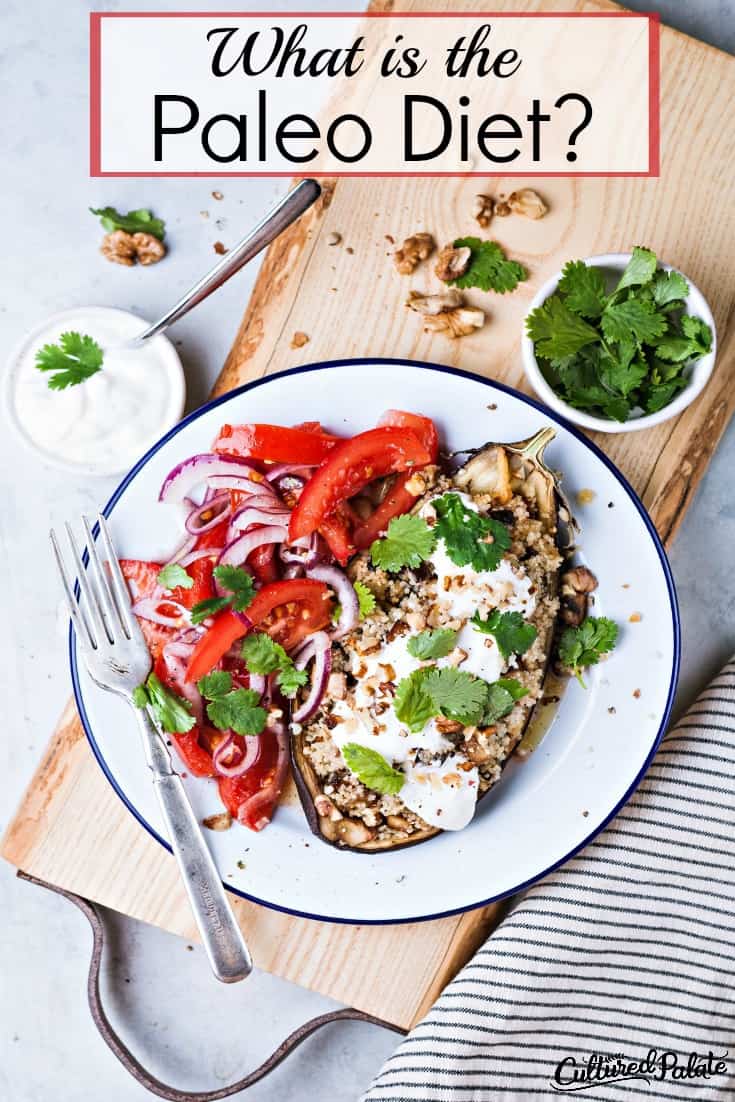
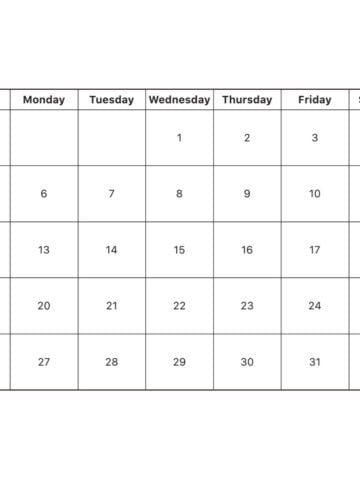
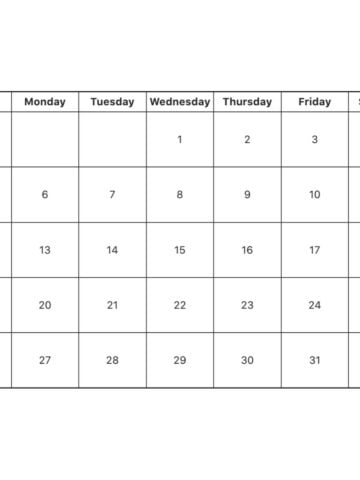
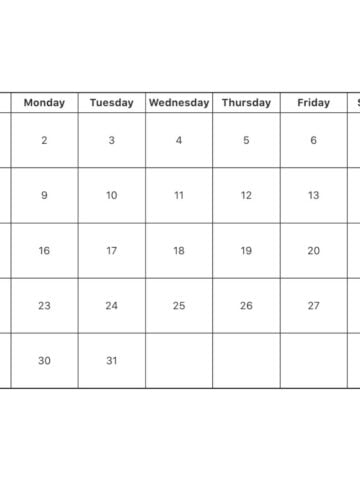
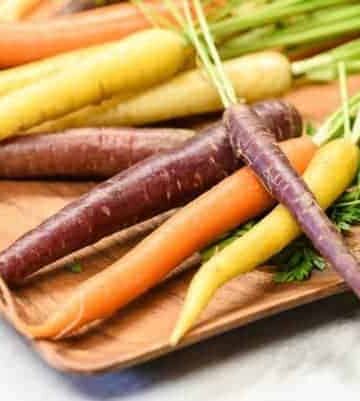
Desiree says
I have been reading a bit about the paleo diet lately and personally would not follow the diet myself. My love for dairy is intense - cupS of raw milk every day, cheese, kefir, yogurt, sour cream, butter... I loooove dairy and it has benefited my health a lot. I also love my grains and beans when soaked or sprouted. Something I need to work on eliminating though is my sweet tooth for chocolate covered crackers! Oh my...
Bebe says
I have been eating my way to a more traditional/ancestral foods for the past fifteen years. I raised my youngest four on raw milk and bone broths, butter and coconut oil, homegrown free-range eggs, organic then pastured meats, wild salmon (a perk of living in the frigid north!) and some souring, sprouting and soaking of grain foods, along with some limiting in general of grains and legumes. Did the HCG diet, lost 40 lbs... and then crashed. I read a few Paleo books, got a couple Paleo cookbooks and tried it for a few months. While I do limit my grains these days (only on weekends, for the most part, because my circumstances have not lent themselves to be able to do GAPS) I found no great change in health or energy doing Paleo. I also took up working out with kettlebells. And crashed again. My adrenals and thyroid are crying for help. I'm going back to Matt Stone's books and listening to my body. Which wants carbs. And rest. And less stress.
KimH says
I eat a closer to Paleo diet than anything else and I have for years. The biggest difference for me is that I dont omit legumes or potatoes.
Ad far as grains go, the only grains I eat are oats (oatmeal) and rices.
Most milk products make me nauseous, cause bloating, and mucus producing.
The way I've always heard about Paleo is if you can kill it, catch it, grow it, find it, pick it... eat it. It works for me & I feel the best when Im on this type of diet..
I've not been following it perfectly for a while.. but I have hope that someday I will.
Walden121 says
Paleo was easier for me to transfer to because before that I was gluten-free due to an intolerance of gluten. I do sporadically eat little bits of dairy and do have the occasional "cheat", but for me, my stomach does significantly better when my diet is so restricted and I feel a lot better. I will admit that it is difficult sometimes and sometimes I fall off the wagon due to the amount of preparation things in general take to make, it's easier if you are a good planner.
Alicettlg says
Our family has been 80% of the time following a plaeo/primal diet for 3 years. For the most part it has been very beneficial to us. Most people when on a CW diet want to cheat they go to a liitle junk food. For us, we go to Gaps lol not at all because its junk, just that it allows us more healthy options. The main reason we do not do grains is not because we are not aware that they could be sprouted or soaked but because of "Mycotoxins" that are found in grains and cannot even be cooked out of the food. For more about that philosophy you can look into Doug Kuaffmann from "Know the cause" I personally try to find a balance of the most nourishing foods in both the paleo/primal & gaps diets.
Sandra says
Hi,
I have been eating a Paleo diet for the last 3 years and it has changed my life. Not only am I off my anti-depressants but I also lost 35 lbs. and have been able to keep it off.
If one still consumes dairy, then they are considered Primal.
For me personally, once I went off grains and dairy and the reintroduced them is when I noticed the side affects. I can have some milk(usually raw) and I am fine. However, if I have any other kind of dairy product, I suffer horrible stomach pains.
As for grains, I can eat a minute amount. Any more than that, my joins flare up and my arthritis goes into over drive. Also, depending on how refined the grains are, my jaw line will break out in itchy bumps and my tongue has been none to break out in sores.
So, it is not for everyone and I agree the whole food Weston A. Price diet is more attainable and less restrictive. As a certified nutritionist myself, I allow my clients wants and needs to guide them into how they wish to eat.
Amy says
I've found that the primal slant on the paleo diet is best suited for me long term. (Though if I had an autoimmune condition, I might think differently). There are super strict people within the paleo world - but MOST of us, I've found, are pretty flexible - to make it a long term liveable lifestyle, you really have to be. I go primal because it does allow for dairy (though I would prefer raw, that's not available to me at the moment - so I use organic butter, whole milk, kefir, and full fat yogurt and cheese in small quantities - less than the FDA recommendations, but more than strict paleo). Primal also subscribes to the 80-20 rule and eating what's best for you as an individual. So if you don't have a problem with gluten, you can eat sprouted wheat and sourdough based bread every once in a while. I do have a problem with gluten, but I allow for non-strict-paleo cheats every once in a rare while on rice, corn and beans (can you tell I'm Mexican?) or even a gluten-free pizza! (If I'm going to a family dinner I can eat corn tortillas with refritos and carne asada with a side of avocado and pico de gallo guilt free knowing that all but the tortilla and beans are totally paleo)
Don't let the rules of strict paleo scare you off it - very few people live that way 100% of the time (again, unless they have an underlying health issue that flares up as soon as they cheat). You can still incorporate the same basic principals and make a lifestyle out of it. If you prefer to call it a traditional foods diet - that works too. I think Nourishing Traditions, Real Food and The Makers Diet books all support minimizing grains in favor of whole fruits, veggies and meat - but don't eliminate them all together, and also include organic and raw dairy.
Julie says
I've looked into the paleo diet but it doesn't seem like a fit for me. I do like to enjoy grains, although, I am trying to cut out the amount of wheat/wheat products I consume. I cut back on wheat for a couple months last year and I felt better. I didn't have any stomach issues during that time. I'm starting to do that now but I am still eating rice, potatoes, sweet potatoes, and dairy. And I haven't totally cut out wheat. I do like to eat and bake sweet treats! :)
I personally feel that a natural or "clean diet" is the best fit for people. Reduce or eliminate your intake of processed foods and reduce your intake of wheat if you notice it makes you feel better when you stop eating wheat.
Thanks for sharing at Marvelous Mondays! :)
christine says
Some of the information in your article in misleading. Avoidance of salt is definitely not part of the paleo diet. Vegetables that can't be eaten raw, like sweet potatoes and olives, are definitely part of the paleo diet. Many who eat paleo don't eat white potatoes because of the high insuligenic response they create, not because you have to cook them. Also, many paleo eaters incorporate small amounts of high-fat dairy- cream, butter, good quality cheeses. There are many "shades" of paleo, and I've found that most paleo eaters actually fall somewhere between paleo, Primal, and WAPF.
Dina-Marie says
Thank you Christine - I appreciate your insight! Like I said in the post, I am still learning and want to hear from those of you who follow the Paleo way of eating. It is my understanding that if you add dairy it is a primal diet??? I did not mean to imply that foods had to be eaten raw but from my reading if they could not be eaten raw they were not included in the Paleo diet. They can be eaten cooked as long as you could also eat them raw.
Jean says
Fifteen years ago I found WAPF and Nourishing Traditions. I was able to get rid of long standing osteoporosis with raw milk and soaked grains. We have also followed the gaps protocol and I found Marks daily apple to be very common sense primal. Like Christine we do a combination of what works with no processed food, no fast food, and only honey and maple syrup as sweeteners.
Peggy says
I follow the Paleo diet to some degree. I have cheats and I can tell when I do. I am sensitive to gluten so really have to watch my consumption. If I have a "real" cookie I can tell that night or the next day. I try hard to avoid it. I don't eat cake or breads that are not gluten free. Right now I am trying to go sugar free, dairy free(I am allergic to dairy)plus the gluten free. I ate like this 2 years ago and lost about 50 pounds without trying. I then was diagnosed with cancer and my oncologist said no more. Wait till after treatment and lose the weight then. She wanted me to eat regular foods - I gain 25 pounds back. I am through with treatments now and cancer free so getting back to fresh fruit and vegetables, some meat, and once in a while a yam. I feel better. So in keeping this up I hope my arthritis pain will slowly go away. I know I felt well when I did it. I don't know if this is a life long "diet" or just for now. Still for those that follow the Paleo I have heard good things and my doctors are all for it. Thanks for this site!